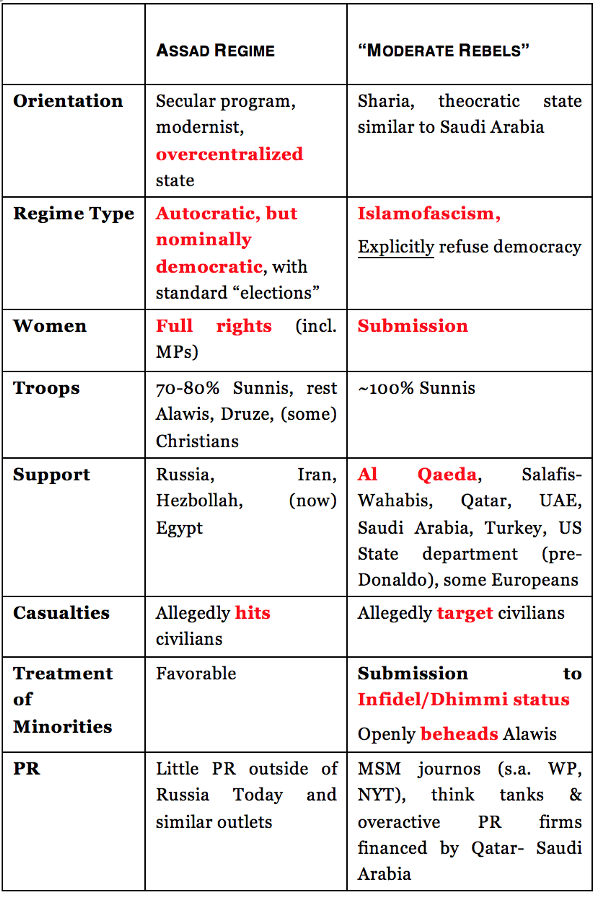On Medium, Nassim posted a comparison of the Assad regime and the “moderate rebels.”

Juxtaposition. The way to analyze the situation is to look at the factions comparatively. You do not compare Assad’s regime to the Danish or Norwegian governments, but to the alternative. The question becomes if there is anything in the left column that is worse than the right column?
Note 1. Assad father’s operatives blew up my house in Amioun when my grandfather, then MP, voted for Bashir. In Skin in the Game I discuss this as “acting against one’s interest” (the opposite of conflict of interest). So as a scientist and a humanist, I have been setting my grudge aside in considering the far, far, far, greater cancer of Salafism or Islamofascism.
Note 2. Recall that I am a statistician. When I took a look at the statistics of the conflicts, most appear to be fabrications inflated by Qatari-funded think tanks and their useful idiots — by a mechanism the Indians call “Salma told Sabrina”. For instance, we know that Hama’s toll was not the 30–40,000 people report but the only real evidence is closer to 2,000.
Note 3. One may ask: are the “rebels” all theocratic Salafis? No, but the groups became progressively so by the minority rule: you put a single Salafi in a group of five, and the five behave as Salafis. This, aside from Wahabi funding.
Note 4. One may ask: are all people who are mourning Aleppo that stupid, so gullible to the think tank operators? My answer, alas, is yes. And it takes some financial and intellectual independence and a great deal of integrity to analyze matters outside the main narrative as think tankers jump on you like flies.
In the end I never imagined seeing the “left” siding with the AlQaeda of Sept 11, mourning the fighters of Aleppo and, aside from such independent journalists as Robert Fisk, spreading all manner of concoctions.
